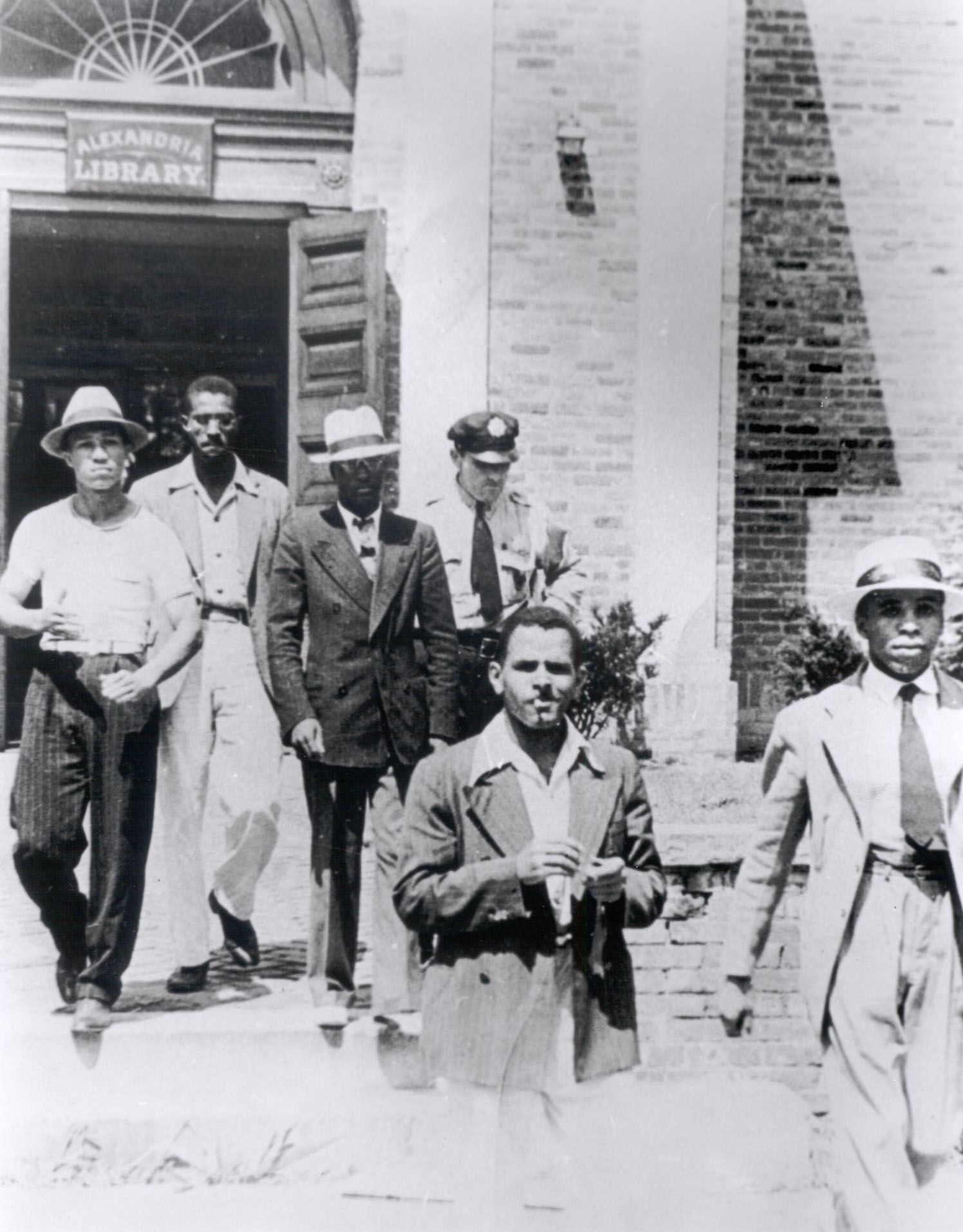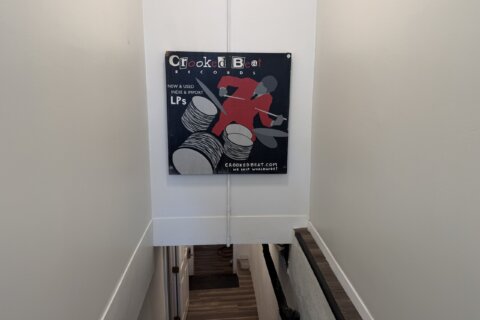Sit-ins are remembered as one of the prime tactics of the civil rights movement, beginning in the 1960s and including sit-ins at Columbia University and Howard University later in the decade. But one of the first sit-ins in the fight for racial equality happened in the D.C. area much earlier than that.
On Aug. 21, 1939, five young black men staged a sit-in at the library on Queen Street in Alexandria, Virginia; they were protesting the library’s exclusion of black people.
This sit-in 80 years ago involved a court case, a brilliant young lawyer and a long-term movement, the artifacts of which are still at work today.
On that Monday in 1939, the five men walked into the library one at a time and asked for library cards. They were given the standard response: The library was for white people only.
Instead of leaving, however, each of the men — Otto Tucker, William “Buddy” Evans, Edward Gaddis, Morris Murray and Clarence “Buck” Strange — sat down at a table and began reading.

This didn’t sit well with the library staff. One page reportedly ran to the home of head librarian Catharine Scoggin and shouted, “Oh mercy, Miss Scoggin, there’s colored people all over the library!”
Scoggin asked them to leave. They didn’t. The police came and asked them to leave. They didn’t. Evans asked the officer, “What would happen if we don’t leave?”
“Then I would have to arrest you,” the officer replied.
“Well,” Evans said, “we are staying.”
The five were arrested and left the library. The sixth member of the group, Clarence Strange’s 14-year-old brother Bobby, had been posted at the door. As soon as the police showed up, he ran to 901 Princess St., the law office of Samuel Wilbert Tucker.
An ‘amazing’ lawyer
“He was an amazing self-taught lawyer,” Audrey Davis, director of the Alexandria Black History Museum, said of Samuel Wilbert Tucker — “very motivated, very concerned with social justice.”
Tucker was only 26 at the time. He wasn’t arrested that day, but his first arrest in the fight against racism and segregation came at age 14, when he and his brothers sat in the section of a D.C. streetcar that became whites-only when it crossed into Virginia. He was in the streetcar because he was headed home from D.C.’s Armstrong Manual Training High, which he had to attend after falsely claiming District residency because Alexandria’s only high school was whites-only.
Tucker knew the importance of libraries: He studied as an undergraduate at Howard University, and educated himself on the law at the Library of Congress while working as an assistant to another black lawyer. As a Virginia native, Tucker wasn’t allowed to go to any of the commonwealth’s segregated law schools. He passed the bar at 20 years old, but that was too young to become an attorney, so he had to wait a year.
“He didn’t want to see that happen to anyone, and he made that his life’s mission,” Davis said.
Tucker told The Washington Post at the time of the sit-in that “to his knowledge, the youths were acting on their own initiative,” but he had already sued the library for its segregationist policy.
He trained the participants in the sit-in, one of whom was his brother, Otto. Tucker coached Evans on his question to the police and told the five not to sit at the same table or talk with each other; he made sure plenty of press were on hand by the time the arrests had happened, and the police and the men left the library. He also represented the defendants in court.
The court case
The charge was disorderly conduct. Since everyone, even the librarian, agreed that the five young men hadn’t been disorderly — one report said, “Everything went all so politely that one would have thought that [Tucker] had also told the police what to do” — the judge buried the case, issuing several continuances but never actually ruling.
Though the law at the time allowed black people and white people to be kept separate, there was no way to keep black people out of a public library — which, of course, by definition was funded by tax money from all residents.
While it would seem that the next logical step would be to open the library to everyone, Alexandria instead fast-tracked the construction of the black-only Robert Robinson Library, on North Alfred Street.
Tucker predicted the library would be substandard, full of books and equipment deemed too old and worn-out for the whites-only library and, by all indications, he was right.
In a letter to Scoggin, after he got a Robinson library card in 1940, he wrote: “I refuse and will always refuse to accept a card to be used at [the Robinson library] in lieu of a card to be used at the existing library on Queen Street for which I have made application.”
It doesn’t appear that he ever got that card. Shortly after returning from World War II, Tucker moved to the southern part of Virginia. He worked on a number of landmark civil rights cases.
One was Davis v. County School Board of Prince Edward County, one of the cases lumped together by the court in the 1954 Brown decision that mandated the desegregation of American schools. Another was Green v. County School Board of New Kent County, a decision that ordered school systems to implement desegregation plans rather than simply writing them.
The libraries in Alexandria gradually desegregated in the late ’50s to early ’60s, Davis recalled.
A hub of activity
Tucker may not have thought much of the Robinson Library, compared to the Queen Street library, but Davis said other black people took to it.
“The library hosted book clubs, meetings — it was a hub of activity for the African-American community throughout the 1960s,” Davis said. “For a lot of the people who used that library, it was what encouraged us to read … it was their link to education. And they made the most of it.”
That tradition continues today. The former Robinson Library is part of the complex housing the Alexandria Black History Museum, and Davis said it includes the African-American Heritage Park, as well as a reading room with more than 4,000 books on African-American and African history, children’s programming, story times and community meetings.
The Barrett branch of the library held a series of events all week to commemorate the anniversary of the sit-in, and the black history museum has a full range of programming to “reflect the diversity of our city — not only African-American history, but all the cultures that make Alexandria a great place to live.”
And Davis said that Tucker’s respect for the power of libraries holds today: “People should support their libraries. They open doors for people.”







